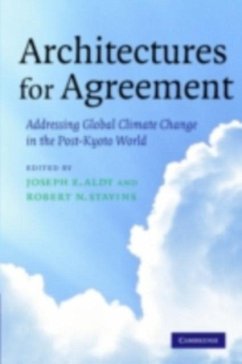With increasing greenhouse gas emissions, we are embarked on an unprecedented experiment with an uncertain outcome for the future of the planet. The Kyoto Protocol serves as an initial step through 2012 to mitigate the threats posed by global climate change. A second step is needed, and policy-makers, scholars, business people, and environmentalists have begun debating the structure of the successor to the Kyoto agreement. Written by a team of leading scholars in economics, law, and international relations, this book contributes to this debate by examining the merits of six alternative international architectures for global climate policy. Architectures for Agreement offers the reader a uniquely wide-ranging menu of options for post-Kyoto climate policy, with a concern throughout to learn from past experience in order to maximize opportunities for future success in the real, 'second-best' world. It will be an essential reference for scholars, policy-makers, and students interested in climate policy.
Dieser Download kann aus rechtlichen Gründen nur mit Rechnungsadresse in A, B, BG, CY, CZ, D, DK, EW, E, FIN, F, GR, HR, H, IRL, I, LT, L, LR, M, NL, PL, P, R, S, SLO, SK ausgeliefert werden.
'The Kyoto Protocol was at best an imperfect and incomplete first step toward an effective response to the enormously difficult problem of climate change, which is characterized by huge stakes, great uncertainties, global scope, and a time-scale measured in decades or centuries. In this important volume, Joseph Aldy, Robert Stavins, and a host of distinguished contributors provide a thoughtful exploration of a range of alternative post-Kyoto top-down and bottom-up regimes and their implications. This book should be read by everyone who takes climate change seriously as a policy problem.' Richard Schmalensee, John C Head III Dean of the MIT Sloan School of Management and Professor of Economics and Management, Massachusetts Institute of Technology



